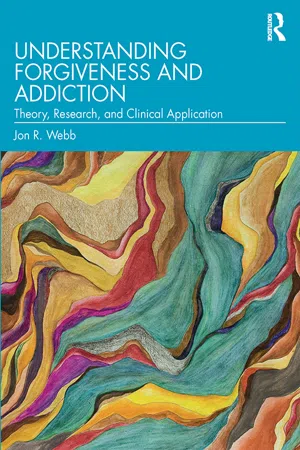As an academic clinical psychologist, an activity that I typically use when teaching university courses on addiction-related topics involves spending 10–15 minutes each week near the beginning or ending of a class session discussing “Addiction in the News.” I usually alternate between different online national news websites, in an effort to tap into various political perspectives, and otherwise balance any perceived, news-based biases. As I never have difficulty finding relevant articles prior to class, for dramatic effect, I am often tempted to do a quick “cold” search of the national news during class, in real-time. The few times I have given into this temptation, as luck would have it, it seems to take longer than expected and the dramatic effect is progressively lost with each successive click required to find an article. Such is life!
As I started writing this introductory chapter, I decided to Google “addiction stories in the news” – on August 1, 2019. The search returned about 256,000,000 hits, with the first dedicated link to a specific story on a national news website (published by foxnews.com on June 15, 2019) being found near the bottom of the first page of results. The story was entitled “Addicted to meds: One nurse’s story of addiction and recovery” and it originated at Healthline.com. At the end of the article (Campbell, 2019), the subject of the story, Samantha, pointed to the role of self-forgiveness in her recovery from addiction and stated:
I’m still working on forgiving myself for the mistakes I’ve made, and I think that will continue for a long time. But I wake up every day and I try to be a better person than I was the day before. I try to remind myself of the successes so that I can quiet my fears and slowly rebuild my self-esteem. It’s a process, but I’m not giving up.
The reason I engage in this activity at the beginning of my classes, and here at the beginning of this book, is to illustrate how ever-present addiction is in our society. Indeed, current events, as reported in the news, are saturated with the story of addiction such that the struggle (public and private) with addiction and addictive behavior in everyday life is seemingly inescapable. Of note, this exercise only provides anecdotal evidence for the ubiquitous nature of the problem of addiction. Moreover, the American Psychological Association (2015, p. 55) defines the anecdotal method as: “an investigational technique in which informal verbal reports of incidents casually observed are accepted as useful information. The anecdotal method is scientifically inadequate but can offer clues as to areas of investigation that warrant more systematic, controlled research.”
In the remainder of this introductory chapter, I will provide an overview of this book, including scientifically justifying the need for a book focused on addiction and the role of forgiveness (i.e., an aspect of spirituality) in recovery from addiction. Information will be presented (as available) in the context of the world in general, and the United States in particular, regarding: (1) the societal problems of addiction (i.e., alcohol, drugs, and compulsive behaviors) and suicidal behavior (sometimes thought of as consistent with addiction), including material related to problem frequency and economic burden, and (2) the universal relevance of spirituality.
Societal-Level Problems Related to Alcohol and Drugs
Using the most recent, publicly available data from 2016 (see Table 1.1 & Table 1.2) provided by the World Health Organization (WHO), an agency of the United Nations, regarding disease burden and mortality (WHO, 2016a, 2016b; see also, GBD, 2018a, 2018b), it is estimated that, worldwide (see Table 1.1), about 1.95 deaths per 100,000 population can be attributed to alcohol use disorders, and about 2.15 deaths per 100,000 population can be attributed to drug use disorders (i.e., opioid, cocaine, amphetamine, cannabis, and other drug use disorders, combined). Likewise, that per 1,000 population, about 2.47 DALYs are lost in the context of alcohol use disorders (i.e., disability-adjusted life years lost – time lost because of poor health and early death), and about 2.93 DALYs are lost in the context of drug use disorders. With a worldwide population in 2016 of about 7,461,884,000 (7.46 billion1) (WHO, 2016a), these estimates suggest that, eac...
